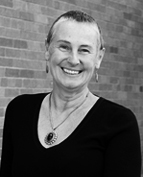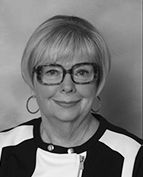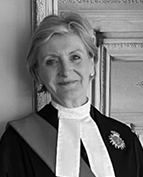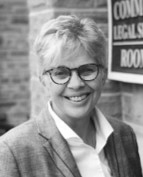Self-Represented Litigants and Family Violence: Making a Difficult Experience Even Worse
Family court is filled with self-represented litigants – up to 50% across Canada and closer to 80% in urban centres. Those SRLs include individuals asking for restraining orders (there is no disaggregated data in Ontario) as well as those experiencing family violence seeking custody, access, child support etc. US research (Kercin, 2015) shows that the outcomes for this second group are significantly worse for those without representation, which matches NSRLP data on systemically less favourable outcomes for SRLs than represented litigants. While Canadian data suggests similar levels of self-representation among men and women, NSRLP suggests that the way that courts treat women is often markedly different and subject to judicial stereotypes (NSRLP, 2018). We also see some examples of process abuse by controlling male partners (for example, continual reopening of child support and access) which suggests a possible relationship with family violence.
The many difficulties of self-representation (including stereotyping and stigmatizing by lawyers and judges) are further exacerbated by the personal experiences of those living with family violence, who often feel further traumatized by their court experience. The level of understanding among members of the Bench of the systemic issues facing those living with family violence and/or in an ongoing controlling relationship appears to remain low. Recent Australian research on family violence and self-represented litigants (Mangman et al 2020) makes a number of recommendations for further assistance for and protection of SRLs experiencing intimate partner violence including a ban on cross-exam by an alleged perpetrator of a victim (in Canada this only applies to those under 18), enhanced court safety measures, and further calls for enhanced training for judges and lawyers.
Finally, even with legal representation there are innumerable issues for the survivors of family violence in undertaking both civil and criminal proceedings and the trauma that is raised. “Going Public: A Survivors Journey from Grioef to Acyion” (Macfarlane, 2020) sets out a series of recommendations for addressing the worst of these systemic problems inside the legal system.
 Julie Macfarlane
Julie Macfarlane
Dr. Julie Macfarlane is Professor of Law and Distinguished University Professor at the University of Windsor. She has researched and written extensively on dispute resolution and in particular the role of lawyers. She is currently the Director of the National Self-Represented Litigants Research Project (www.representingyourselfcanada.com) and recently authored the book Going Public: A Survivor's Journey from Grief to Action is published by Between the Lines, Toronto.
 The Honourable Mary Jo Nolan
The Honourable Mary Jo Nolan
The Honourable Mary Jo Nolan brings her skills, experience, knowledge and understanding from her years as a Justice of the Ontario Superior Court of Justice and as a Case Management Master in the Superior Court of Justice to her new role as a Mediator and Arbitrator of Family, Estate, and Civil matters.
While on the Court, Mary Jo was known for her fair and respectful dealing with Counsel and Litigants. She is widely respected for her skills in conflict resolution, identifying and narrowing issues, and assisting Counsel and their Clients to arrive at reasonable and cost-effective solutions.
Mary Jo's experience as a trial judge makes her uniquely qualified to arbitrate matters or issues which cannot be resolved through mediation.
 The Honourable Lynda C. Templeton
The Honourable Lynda C. Templeton
1975: B.A. (Hons) French (UWO)
1976: B. Ed. (Queen’s University)
1981: M.A. French (UWO)
1984: LLB (UWO)
1986: Call to the Bar in Ontario
1998: Appointment to the Ontario Court (General Division) now the Superior Court of Justice)
I have taught French in the educational system at all levels from Kindergarten to second year university. I have also taught English as a Second language at the College level. As a lawyer, I worked for five years as a family law lawyer and seven years as an Assistant Crown Attorney in Hamilton. I was appointed to and sat in Brampton for three years before adopting my daughter from China and moving to London where I have presided until my retirement effective May 1, 2021.
 Malcolm Bennett LLB. AccFM. AccEM.
Malcolm Bennett LLB. AccFM. AccEM.
Bluewater Mediation
After retiring from his practice as a family law lawyer with McKenzie Lake LLP, Malcolm has continued his mediation and arbitration practice as Bluewater Mediation. He is an accredited family mediator and elder mediator with OAFM. He serves on the Board of Directors for OAFM.
 Julie Lee
Julie Lee
Senior Family Lawyer at Millars Law
Julie Lee (she/her), is a family law lawyer in London, Ontario. She graduated from Western Law in 1999, and subsequently clerked with the Honourable Mr Justice Frank Iacobucci at the Supreme Court of Canada. Since 2018, she has worked as Review Counsel at Western Law’s Community Legal Services (Family). In this role Julie supervises and collaborates with Western clinical law students offering family law representation to community clients. Prior to joining Western’s CLS, Julie was a sole practitioner with particular emphasis on the family law issues of parenting disputes; child protection, and as a panel member appointed to represent children with the Office of the Children’s Lawyer.
Webinar Resources:
All our resources are open-access and can be shared (e.g., linked, downloaded and sent) or cited with credit. If you would like to adapt and/or edit, translate, or embed/upload our content on your website/training materials (e.g., Webinar video), please email us at fvfl-vfdf@uwo.ca so that we can work together to do so.






